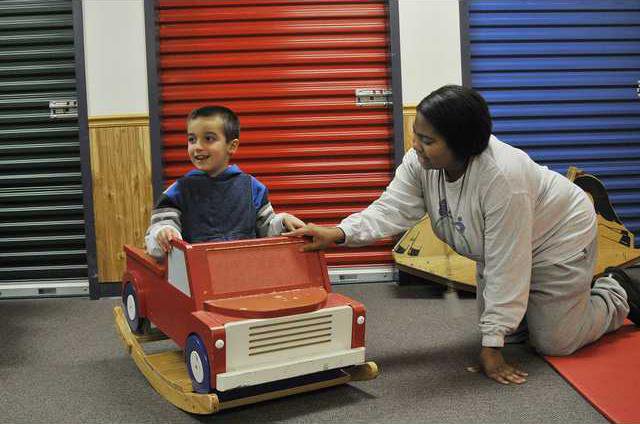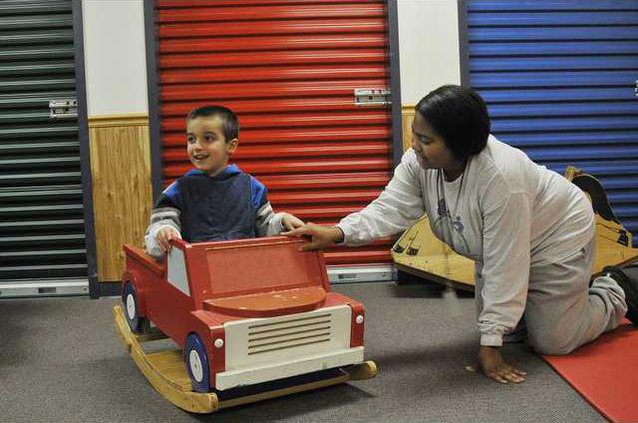In the past few years, autism has become one of the most talked about disorders.
While some experts argue that the disorder is caused by genetic factors, others argue that the condition is related to environmental factors.
Depending on the individual patient, both arguments may be correct.
"My son was diagnosed when he was 3 years old," said Jennifer Brown, who is a therapist at Challenged Child and Friends in Gainesville.
"We found a physician who works with metabolic issues who discovered that he had food sensitivities that were causing his symptoms. His body couldn’t break down gluten or casein. When we eliminated those things from his diet and put him on supplements, his symptoms went away. Now he’s in a typical first-grade classroom, and most people don’t believe me when I tell them that he used to be autistic."
The degree to which a patient is affected by autism varies, but the basic set of symptoms is the same. All autism patients have issues with social interactions, verbal and nonverbal communication and repetitive behaviors.
"Autism is more common than multiple sclerosis, cystic fibrosis and childhood cancer combined," said Lee Highsmith, director of development at Challenged Child and Friends.
"One in 135 children in Georgia is affected by autism, and 1 in 80 boys is affected by the disorder."
Despite the high numbers of children affected by the disorder, Highsmith said less money is spent on autism research than other medical conditions.
While the cause of autism is debatable, most experts agree that early intervention is the best way to help autism patients lead the most complete lives, which is where Challenged Child and Friends comes into play.
At the center, children from 6 months old to 6 years old — with various disabilities and disorders — can receive counseling and therapy to help them cope with their individual disorder or disability. In the past five years, Highsmith said her center has seen an increase in the number of children who have been diagnosed with autism.
"Parents and caregivers are the first people to notice when something isn’t quite right with their child. So as they become more and more aware about the symptoms of autism, it is being brought up more in their doctor’s office," Highsmith said. "Doctors are also more aware, so they are doing the screening a lot sooner than they used to."
At Challenged Child and Friends, therapists work with autistic children to help them cope with environmental triggers like lights and sounds that can cause the child to "melt down."
"We try to make everything here routine, but life isn’t routine, so we try to help them cope with change," Brown said. "With autistic children, you may think that they are being bad or have behavioral issues, but in reality they are very sensitive to noises; so when there is a lot of noise around they can’t focus.
"It’s like if you had a rock in your shoe, if you tried to walk around with the rock in your shoe, you’d have trouble focusing on anything except that rock."
Even as autism diagnosis becomes more prevalent, Brown says there are still societal hurdles to overcome.
"A lot of parents feel guilty, like they did something wrong. I had to deal with that at first too," she said. "And besides that guilt, they have to deal with public perceptions. All children have meltdowns in the store on occasion, but when an autistic child has a meltdown because they are overstimulated by the music or lights in a store and they are screaming, people look at you like you are a bad parent."
Highsmith echoes Brown’s thoughts.
"There are still those people who think that autism is a behavioral issue, that if you just disciplined your child more then they wouldn’t have those triggers," she said. "Autism is still an acceptance issue."
While most patients typically display autistic characteristics early on, there are some patients who are not affected by the disorder until later, which is known as regressive autism.
"My son was hitting all of the developmental markers, and then when he was 17 months old, he just seemed to shut down," Brown said. "He started doing the flapping thing with his arms and he wouldn’t make eye contact. I remember how hard I used to struggle to get him to look me in the eye. Like most parents, I was in denial for a long time."

